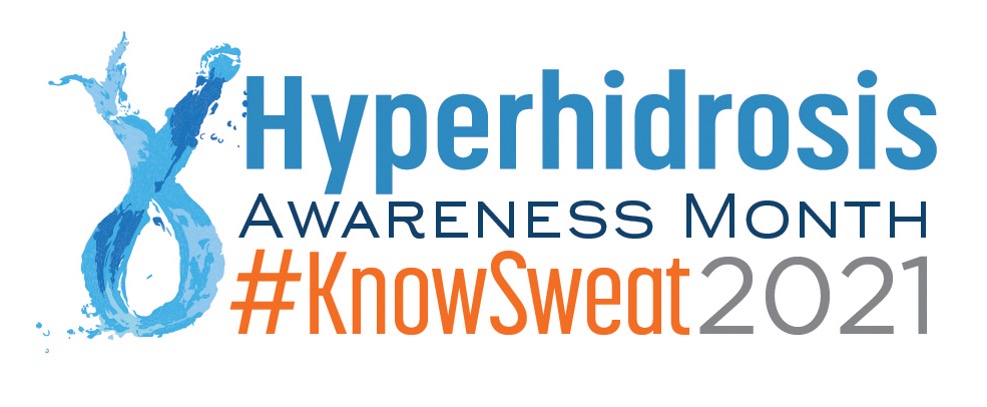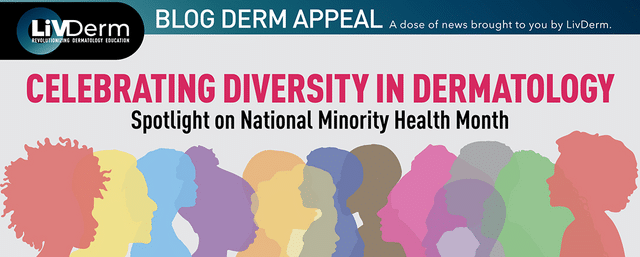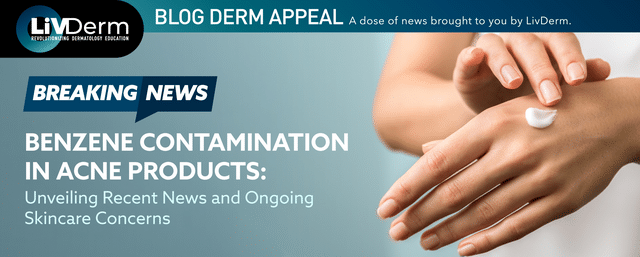Although relatively common, hyperhidrosis is often misunderstood or dismissed as an unimportant condition. In fact, hyperhidrosis causes excessive sweat that is up to five times more than the average physiological response to exertion, temperature or stress. The below testimonial from a real patient with hyperhidrosis illustrates the significant negative impacts of this disorder that merit awareness and treatment. Megan’s story is brought to you by the International Hyperhidrosis Society in honor of Hyperhidrosis Awareness Month.
I’m a Nurse and Here’s How Hyperhidrosis Has Impacted Me
“I have primary focal hyperhidrosis on my hands and feet (palmoplantar). This excessive sweating began when I was a baby, presents bilaterally, occurs every day, stops when I sleep, and is influenced (but not caused by) temperature changes. It produces visible streams of perspiration that pool on and drip off the palms of my hands and soles of my feet.
Fundamentally, this means I am unable to reliably grasp any object in my hands for a period of time without it becoming wet with sweat. Imagine having to touch and then withdraw from everything that you hold for fear of destroying it (paper); ruining it (electronics); dropping it (pens, glasses); offending or disgusting it (people); or making it uncomfortable (babies, pets).
The resulting sadness and isolation is profound, especially if you’ve been dealing with excessive sweating your whole life. To this day, I’m unable to finely grasp or manipulate objects and this renders me tentative, less competent, and (at times) unsafe. In my personal life I have developed behaviors to cope, but in my nursing career hyperhidrosis has been more difficult to overcome.
I have been a registered nurse since 2008. In 2013, I was thrilled to be offered a position at an outpatient surgery center. Before it was official, the head physician asked me to spend a few shifts shadowing other staff, orienting, and learning; I would also be expected to assist the doctor during surgery and to demonstrate proficiency. I was immediately fearful because the role involved nursing tasks that I typically avoided due to my hyperhidrosis (things like starting IVs and administering anesthesia) because they involved quickly donning gloves and efficiently manipulating small needles, syringes, and tubing.
Fortunately, during my trial period I was able to successfully start IVs and I felt like I was functioning well. But I received a call from the physician. She said she was sorry but I was not “a good fit” for the position. When I asked for more of an explanation, she explained that I was “too hesitant” and slow. I hung up the phone and wept.
This is just one example of the many ways excessive sweating has influenced my life. Out of necessity, I cope by perpetually keeping paper towels balled up in my fists or by wiping my hands on my pants (over and over again). I have adapted and I do my best to minimize the disruption of my hyperhidrosis. But it’s hard to accept the psychosocial and emotional distress hyperhidrosis has caused me. I will likely never work as a nurse in an emergency room or ICU, but I am an excellent clinic nurse and will soon be a community-based nurse practitioner.
I have been fortunate enough to be cared for by health care providers educated on hyperhidrosis best practices and have received treatments that temporarily improve my symptoms. I continue to give thanks to the non-profit and professional organizations that advocate for more recognition, support, research, and treatments for hyperhidrosis sufferers like myself, and I continue to hope for even better hyperhidrosis care in the future.”
Megan Pepple, RN, BSN
Get involved in hyperhidrosis awareness
Megan’s story is one of many. This November patients, friends, caregivers and providers can raise awareness and break the stigma of excessive sweating. Share your stories on social media – use the tag @WeKnowSweat on Instagram or Twitter, and the tag @SweatingStopsHere on Facebook.
About the International Hyperhidrosis Society (IHhS)
Founded in 2003 by a team of dedicated advocates, the International Hyperhidrosis Society is the only nonprofit, independent, global organization that strives to raise awareness for hyperhidrosis and other disorders that cause excessive sweating. The mission of IHhS is to reduce the symptoms, social stigma, anxiety and misconception of hyperhidrosis through education, research and advocacy. Visit the IHhs website to learn more.
















